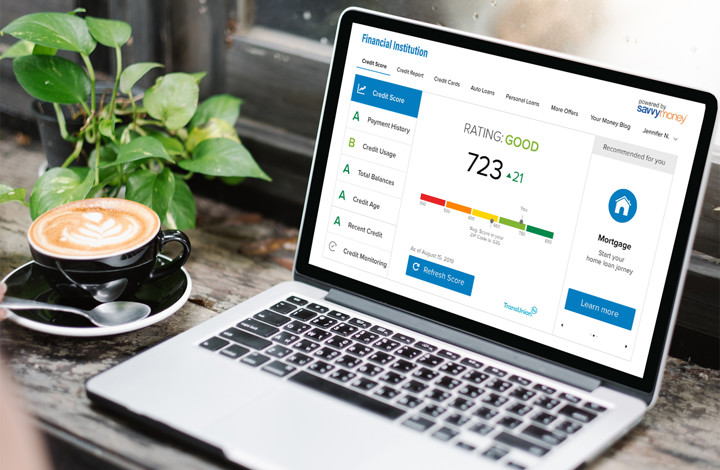With Christmas just around the corner and many of us gearing up to take some time off from work to be with our families, it's essential to stay vigilant as scammers are ramping up their efforts and working overtime. These fraudsters employ various tactics to target distracted and stressed last minute holiday shoppers. Whether you're on the hunt for the ideal gifts for your loved ones or contributing to a charitable cause, it's crucial to stay alert and be on the lookout for potential fraudulent activities. If you ever detect any suspicious activity, remember to:
Stop. Look. Think.
Accidental “Clicks Happen” but they are preventable if we remember to stop, look, and think.
- Stop: Scammers often create a sense of urgency with their tactics, so it is important to always stop and question the legitimacy of the request.
- Look: Examine the details of the situation and question if the request is unexpected, suspicious, or abnormal.
- Think: Reflect on the legitimacy and consider whether it aligns with your usual experiences.
Trust your instincts and be cautious if something feels off or sounds too good to be true. Your best defense against fraudsters this season is to be aware of the tactics they use. While scammers are always evolving their strategies to stay ahead of consumers education, our experts are here to share their predictions for the top 5 fraud schemes to look out for this season.
1) Missed Delivery Notification Texts
With the influx of online shopping around the holidays and postal services behind schedule, many people become impatient awaiting packages. One recent scam involves fraudsters sending fake delivery notification text messages, in hopes that you’ll click on the link. These scam texts will take you to a phony website designed to either steal your personal information, ask for your credit card number, or fool you into sending the scammers money.
Warning signs:
- You’re asked to enter sensitive information. FedEX, UPS, and other delivery companies won’t ask for your SSN or credit card number to “find” your delivery.
- The link in the text takes you to a site that isn’t on the official UPS, USPS, or FedEx domains. For example, you can trust websites that use UPS.com, FedEx.com, or USPS.com; but other variations of these domain addresses are scams
2) Fake Charities
Scammers take advantage of your generosity during the holiday season by creating fake charities. It’s important to research charities before you donate. You can check that a charity is legit by using the Better Business Bureau’s Wise Giving Alliance or Charity Navigator. For GoFundMe and similar campaigns, look into the organizer or group behind it before donating.
Warning signs:
- Always check the URL and charity name before donating. Scammers often create “lookalike” charities that use variations of trusted names to fool you.
- Be cautious if you experience hard-sell tactics or vague language. Charities should never threaten you, and you should always be able to tell how your donations will be spent.
3) Phishing from Companies You Trust
The scammers don’t stop at creating fake charitable organizations, they may also pose as companies or agencies that you trust. For example, they may impersonate companies like Amazon or Apple to offer “giveaways” or claim to be from your bank and warning you that your account has been compromised. But the goal is always the same: Get you to click on a suspicious link or call a phone number and give up money or sensitive information.
Warning signs:
- You receive an unsolicited message about a special offer or prize. Any email or text message that you didn’t request should be treated with caution.
- The message contains a strange link. Phishing scams try to take you to a fake website or infect your device with malware. Always hover over links to see where they’re taking you before clicking.
- There are other signs of a phishing scam, such as strange spelling, grammar, and formatting issues.
4) Fraudulent Seasonal Job Offers
Job scams are a growing problem year-round. But during the holiday season, scammers prey on people looking to make extra cash by posting fake job listings offering good money for little work. In almost all cases, the scammers will either steal your personal information during the “hiring process” or trick you into sending them money for “supplies and training.” It's important to research the company before giving them your personal info. Check review sites like Glassdoor to see if anyone has left comments about the company. Make sure you don’t share sensitive information until you can verify that the identity of the person and the company offering you the job are both legitimate.
Warning signs:
- Be very cautious if you’re hired with little to no process. Scammers will either offer you a position on the spot or conduct a quick interview over WhatsApp or Telegram.
- Beware of any job that asks for your personal information right away — including your Social Security number (SSN), bank account numbers, or tax information.
- You’re asked to cash a check and send extra money back to the company. This is a clear warning sign of a refund scam.
What do I do if I think I’ve been scammed?
If you feel that you have been scammed, it is important to take the necessary actions to limit the damages caused and to protect yourself from any more issues that could be faced.
- Contact your credit union or bank immediately: If you sent the scammer any money or account information, call your financial institution and let them know that you have experienced fraud. Ask that the transaction be canceled and if it has already gone through, you may be able to dispute the payment in an effort to get your money back.1
- File a complaint with the Federal Trade Commission: Let the FTC know about the scam that you have experienced via a complaint to inform them of what is going on. This will allow them to protect others from experiencing the same scam. The FTC will provide you with the proper steps to take to potentially get your money back.1
- Freeze your credit reports: Scams that steal your personal information and not just your money can be dangerous when it comes to your credit reports. If you feel that your personal information was stolen, freeze your credit reports immediately. Doing so will block the scammer from opening any accounts using your information, which could tarnish your credit scores.1
Have questions or need to report suspicious activity?
Contact Elements Financial for fraud support year-round. From everyone at Elements, may you enjoy a safe, healthy, and happy holiday season!







